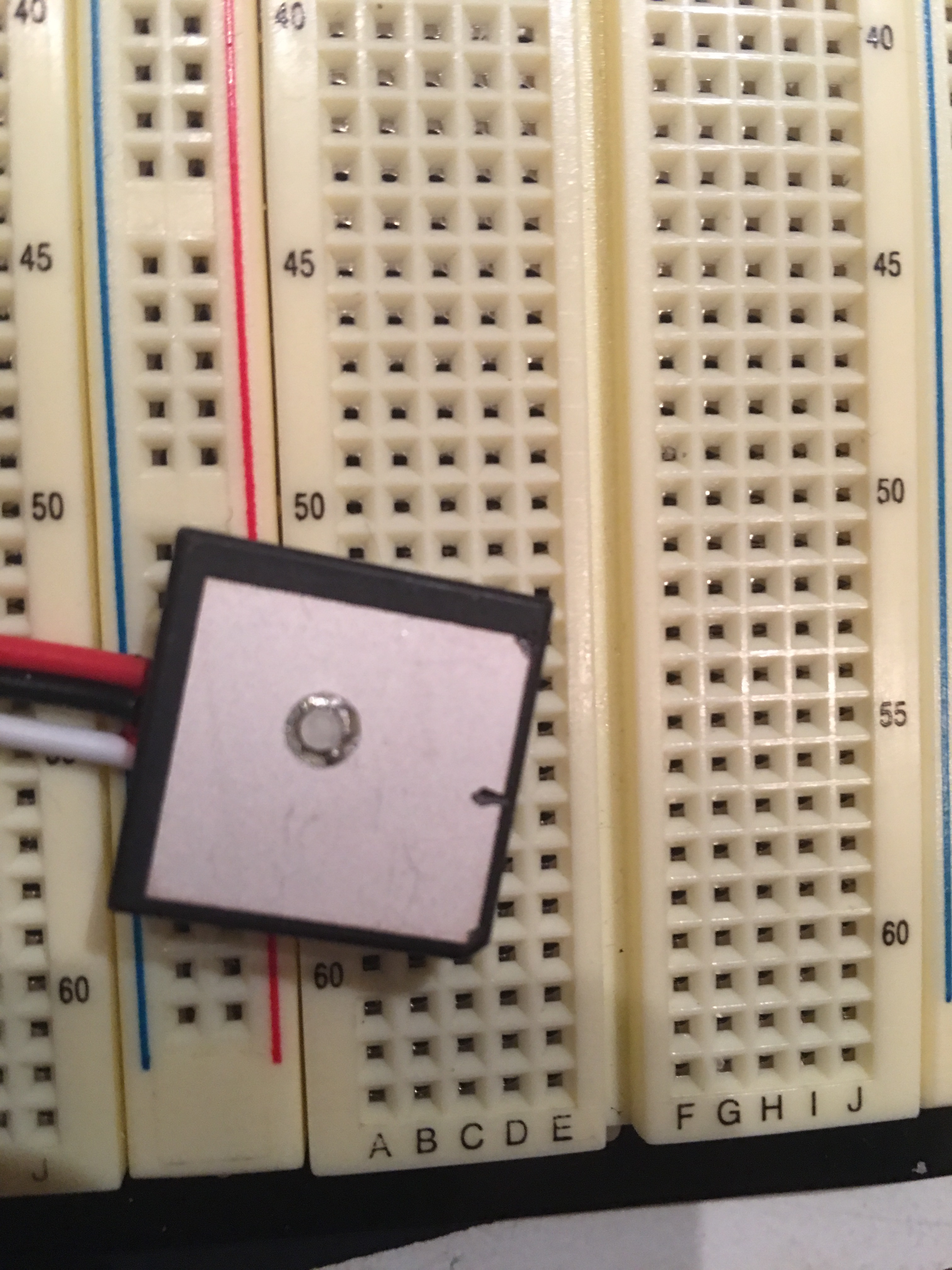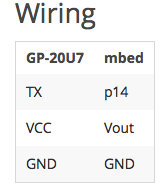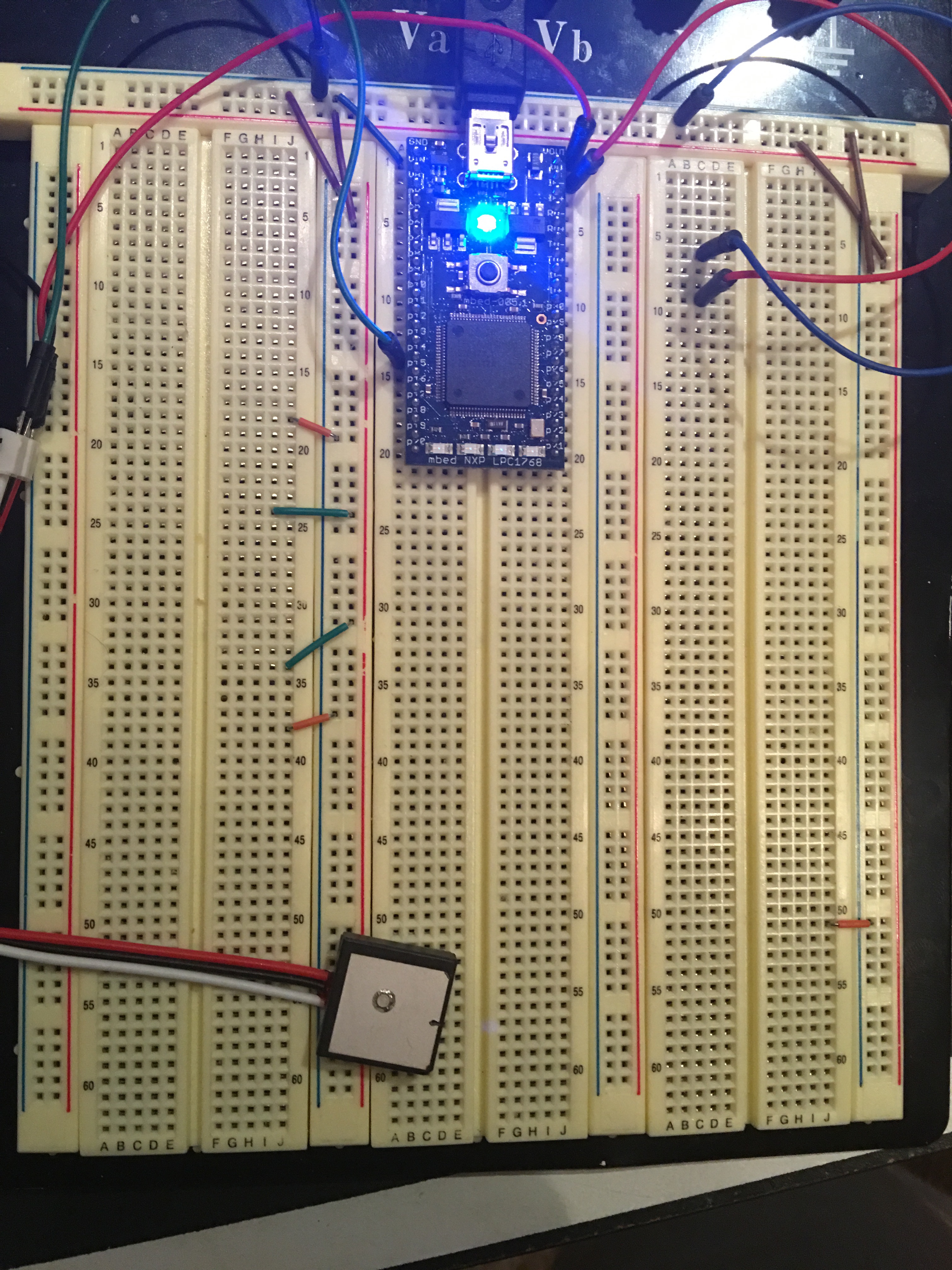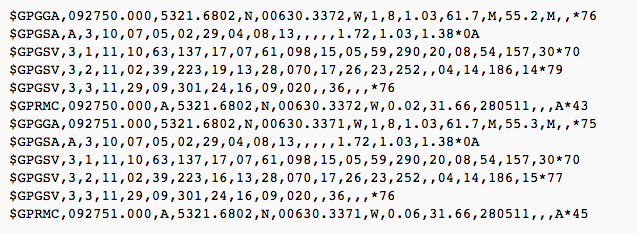Library to operate GPS 20u7 with Mbed
GP-20U7 is a GPS receiver build-in high performances -165dBm GPS chipset. GP-20U7 provides high position, velocity and time accuracy performances as well as high sensitivity and tracking capabilities. The low power consumption makes this GPS receiver deal for most portable applications.

This 56-channel GPS module, that supports a standard NMEA-0183 and uBlox 7 protocol, has low power consumption of 40mA@3.3V (max), an antenna on board, and -162dBm tracking sensitivity. With 56 channels in search mode and 22 channels “all-in-view” tracking, the GP-20U7 is quite the work horse for its size.
Features
- 56-Channel Receiver (22 Channel All-in-View)
- Sensitivity: -162dBm
- 2.m Positional Accuracy
- Cold Start: 29 seconds (Open Sky)
- 40mA @ 3.3V
- 3 pin JST connection
This module sends six National Marine Electronics Association(NMEA) messages in the form of strings. It is standardized with NMEA 0183 https://en.wikipedia.org/wiki/NMEA_0183 . It is slowly being phased out by NMEA 2000 https://en.wikipedia.org/wiki/NMEA_2000. It is also capable of using the UBLOX protocol. The serial configuration needed for the GP-20U7 is:
Serial Configuration
- Baud Rate = 9600
- Data Bits = 8
- Parity = None
- Stop Bits = 1
- Handshake = None


A typical output will look similar to the following:

It is a combination of 6 different standard strings GGA, GLL, GSA, GSV, RMC, and VTG.
The NMEA string parsing can be very tricky in order to combat this I imported a library that I was familiar with from Arduino tinkering called TinyGPS.
Import libraryTinyGPS
Port of Arduino TinyGPS library to mbed. Added extra methods to flag receipt/parsing of particular sentences.
The above library has been encapsulated in the new c++ class contained in my GPS 20u7 library.
Import libraryGPS_20u7
Library to operate GPS 20u7 with Mbed
Here is the Hello World example code to use the GPS 20u7 library.
main.cpp
#include "gps.h"
// serial
GPS gps(p13, p14);
Serial serial_pc(USBTX, USBRX); // tx, rx
int main() {
serial_pc.printf("Hello World\n");
while(1) {
if(gps.isConnected()){
//serial_pc.printf("Serial device is here \n");
if(gps.isLocked()){
gps.parseNMEA();
serial_pc.printf("UTC: %d-%02d-%02d %02d:%02d:%02d, \n\r", gps.year, gps.month, gps.day, gps.hour, gps.minute, gps.second);
serial_pc.printf("As doubles- Latitude: %f, Longitude: %f Altitude: %f Course: %f \n\r", gps.f_lat, gps.f_lon, gps.f_altitude, gps.f_course);
serial_pc.printf("Speed: %f mph, %f mps, %f kmph \n\r", gps.mph, gps.mps, gps.kmph);
serial_pc.printf("Horizontal Dilution as double: %f \n\r", gps.f_hdop);
serial_pc.printf("Less Precise- Latitude: %l, Longitude: %l Altitude: %l Course: %ul \n\r", gps.lat, gps.lon, gps.altitude, gps.course);
serial_pc.printf("Horizontal Dilution as long: %f \n\r", gps.hdop);
serial_pc.printf("Age of fix: %lu ms \n\r", gps.age);
serial_pc.printf("Number of Satelites: %lu Speed: %lu 1/100ths of a knot \n\r", gps.sat_count, gps.speed);
wait(5);
}
}
}
}

